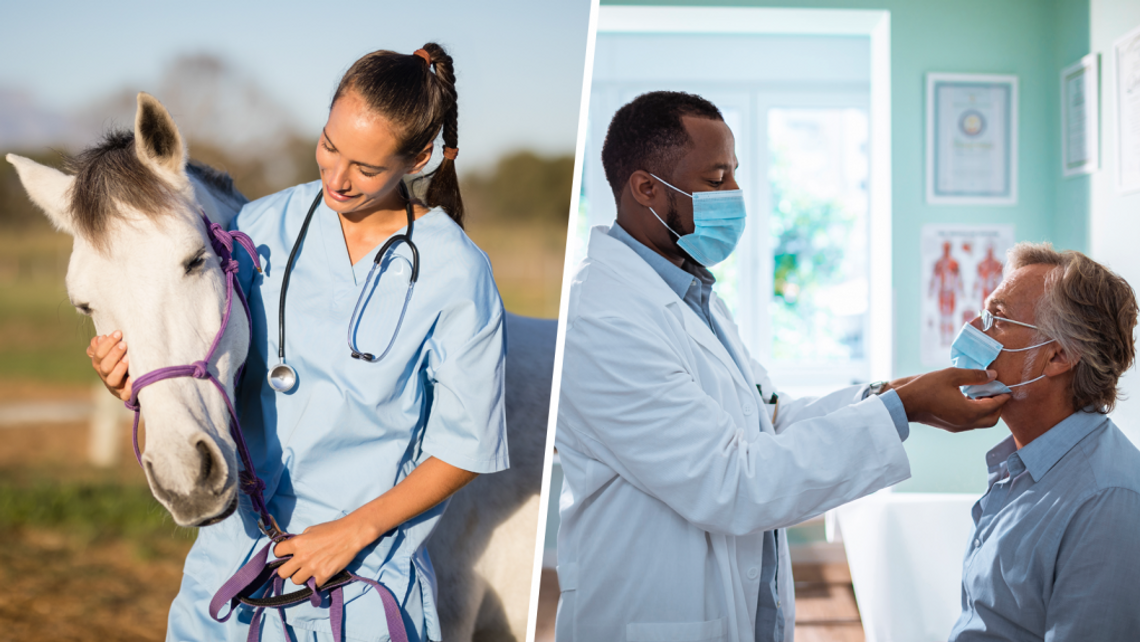Mississippians looking for a COVID-19 cure or preventative are potentially putting their lives in danger by taking the drug Ivermectin, sold at livestock supply stores as a treatment for heartworms and parasites in cows and horses.
“There’s no evidence that Ivermectin can either prevent or treat COVID-19, and the risk of attempting to use this is much greater than any potential benefits,” said Dr. David Vearrier, a toxicologist and professor of emergency medicine at the University of Mississippi Medical Center.
Ivermectin is not approved by the FDA for COVID-19 treatment or prevention. The COVID-19 vaccine and monoclonal antibody treatment, however, have been approved by the FDA through an emergency use authorization.
Both the vaccine and monoclonal antibodies are expected to have full FDA approval in coming weeks.
Misinformation on social media is driving people to purchase Ivermectin from their local feed stores or livestock supply businesses. “When these things become viral, a lot of people will jump on them,” said Vearrier, who works with the Mississippi Poison Control Center, which operates under UMMC’s umbrella.
“Folks are believing that it’s somehow possible that this medication will either reduce transmission, or reduce the degree of symptoms of COVID-19, none of which is correct,” he said.
One of the biggest dangers of human Ivermectin ingestion is how easily a person can overdose, said Vearrier and Jenna Davis, a family nurse practitioner and the Poison Control Center’s managing director.
“People are buying a livestock medication intended for an animal five to 10 times their weight,” Davis said. “Generally it’s safe for animals, but depending on the dose you take, it could potentially lead to side effects that could cause death.”
Side effects can include neurological events such as dizziness, seizures and confusion; sudden drop in blood pressure; elevated heartbeat or cardiovascular issues; liver injuries such as hepatitis; and severe skin rash, “all of which can land you in the hospital,” Vearrier said.
That’s in addition to nausea, vomiting, diarrhea, stomach pain, facial or limb swelling, and abnormalities that include a decrease in white cell count.
The Mississippi State Department of Health confirms at least one person has been hospitalized for Ivermectin toxicity and Friday issued a health advisory warning against ingestion of the drug as a COVID-19 treatment or preventative.
“People don’t understand that with all prescriptions, the dose matters,” Vearrier said. “People are buying formulations of Ivermectin that you’d use for a 1,200-pound cow or horse, compared to a 120-pound human. That’s a big difference.”
Ivermectin is commonly sold as paste in a tube, although it’s also marketed in topical cream, liquid that can be ingested or injected, and pill form. “You can feed the paste to the 1,200-pound animal, but because it’s a paste, it’s difficult for a human to measure a dose,” Vearrier said. “People who are squirting this tube in their mouth or putting the paste into orange juice are using super concentrations that can result in toxicity.”
The Poison Control Center has taken a number of calls recently from people wanting to know if the misinformation about Ivermectin is true, and whether it’s safe for humans, or how best to use it for their animals. “We appreciate that,” Davis said.
Other callers have been individuals who Googled the drug and then gave it to a family member, adults who took Ivermectin themselves and suffered side effects, and accidental ingestions by children, Davis said.
People report ingesting Ivermectin by drawing up the liquid into a syringe and squirting it into their mouth, Davis said. Others “are going online to try to find out how to take it, and they are inaccurately dosing it. We’ve referred at least one person to the hospital for doing that.”
And although they were hospitalized for severe cases of COVID-19, some UMMC patients have reported they took Ivermectin, Davis said.
Ivermectin does have a legitimate, FDA-approved use in humans when it’s prescribed for treatment of scabies, a contagious, intensely itchy skin condition caused by mites that burrow into the upper layer of skin and lay eggs.
“When it’s used as prescribed for scabies, it’s a relatively safe treatment,” Vearrier said “It’s only available by prescription, so if you are using it to treat COVID, the difference in dosing between a tablet for human use and the livestock formulation is where you’re going to get in trouble.”
The MSDH advisory urges those who have become ill from taking Ivermectin to call the Poison Control Center at 1-800-222-1222.
Vearrier and Davis advise people not to request an Ivermectin prescription from their provider.
“Most physicians, including physicians who are knowledgeable about COVID, know not to prescribe this medication for COVID,” Vearrier said. “Any physician who is doing so is not following the currently known science. They are increasing the risk to their patient and to the population in general who might believe it to be safe.”
.png)

Comment
Comments